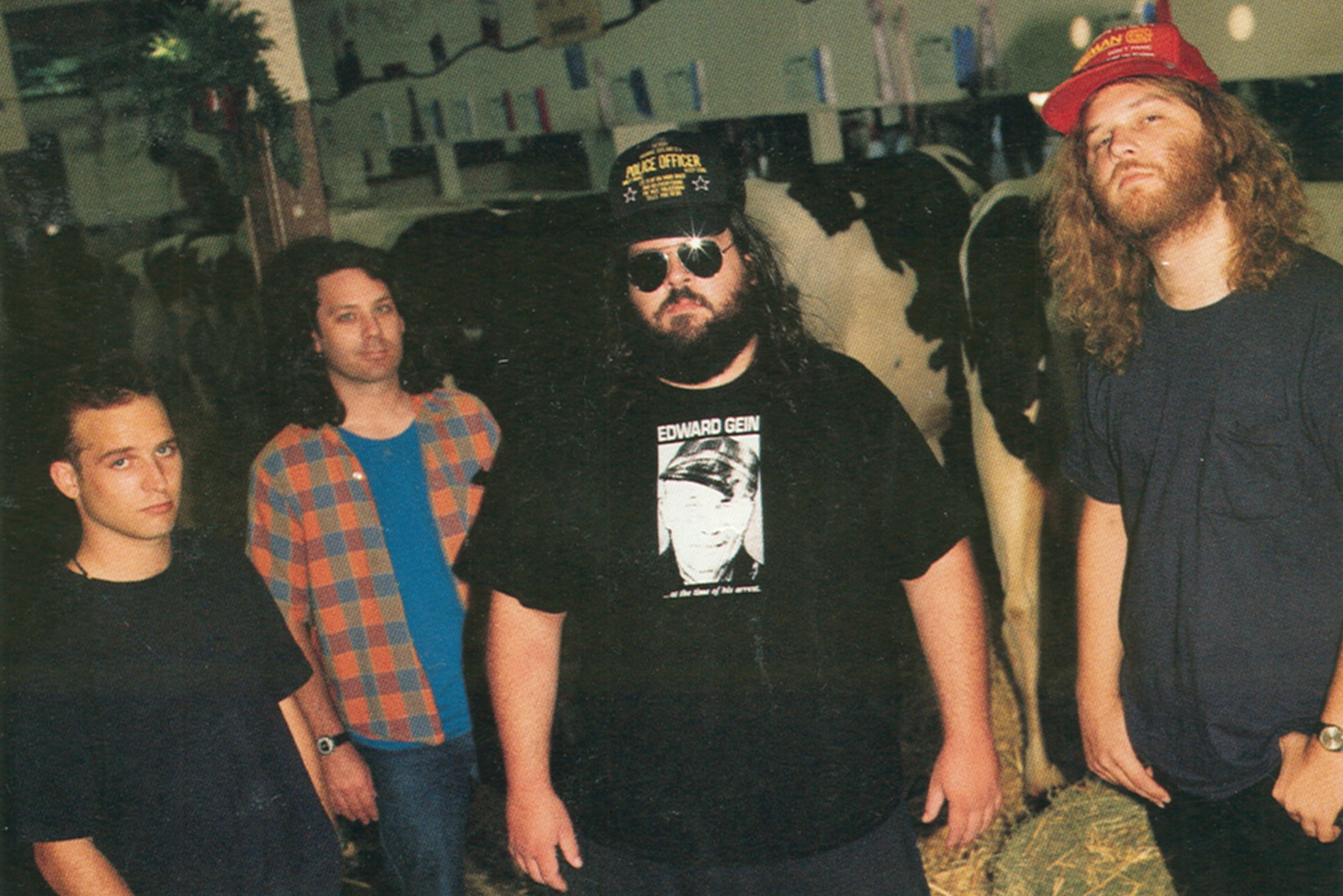There are plenty of establishments where it makes sense that Galen Disston, lead singer of the popular Seattle band Pickwick, would be recognized: browsing bins at Sonic Boom or taking in a show at Neumos, perhaps. But hanging with his kiddo at a bouncy house play space is not one of them, which is why a recent interaction caught him completely off guard. “Another parent sent her kid as an ambassador,” the big-haired, bespectacled crooner says of the recent recognition. “This kid shows up next to me and looks at me totally timid and says, ‘We love your band and good luck on tour.’ ”
Pickwick’s following has grown steadily since 2012’s Myths, one of the year’s best-selling local releases, propelling the blue-eyed soul group to its status as one of the city’s highest-profile unsigned acts, culminating with a sold-out New Year’s Eve show at The Showbox at the Market.
Considering its success, it was a surprise when the band announced it would self-release its highly anticipated follow-up, Can’t Talk Medicine, out March 12. Several labels had courted Pickwick, but the band felt that none of the deals were exactly right. “We felt like it would be better to grow into one of those relationships with a little more time,” says multi-instrumentalist Kory Kruckenberg. “Each of the offers had a different feel and a different reason why it wasn’t the right fit. Ultimately that’s what we were looking for, a perfect fit.”
The members of Pickwick—the other four are Michael Parker, Garrett Parker, Cassady Lillstrom, and Alex Westcoast—have always had a strong sense of where the band was headed, and after slowly building a local following, they gained the confidence to remain in control of their career. Though fellow Seattle indie act Macklemore had incredible success in 2012 with a self-released album, Pickwick says that wasn’t a motivation for them to do the same. It was more a matter of feeling as though they could continue to build things as they have been, on their own terms, transitioning to a label when it feels right.
“They are really measured and they think things through and they’re not impulsive,” said manager Ben Dickey, whose Constant Artists also manages Spoon and Okkervil River. Though Dickey doesn’t generally get involved with unsigned acts, Pickwick felt special to him. Besides falling in love with their sound, Dickey was struck by the band’s patience. “It felt like one of those traditional, regionally grown success stories. It was growing the way bands used to grow, which is unusual now.”
Pickwick isn’t doing things entirely alone, however. Can’t Talk Medicine will be distributed through CIMS, the Coalition of Independent Music Stores, which will get the record into key indie record shops across the country. The band also has management, a publicist, and a well-established booking agent in their corner to continue the band’s growth in several key markets.
In addition to business savvy, Pickwick also had a strong vision for their first proper LP. They began in 2008 sounding like many of the folk-rock revival groups this town has recently birthed, but didn’t begin to pick up momentum until they moved away from folk and alt-country and closer to the soul-based music they were partial to.
“We have so many sounds coming out of Seattle,” said John Richards, host of KEXP’s popular morning show. “I was trying to remember the last time I heard a band that sounded like [Pickwick], which was another band that we broke, Fitz and the Tantrums.” Richards says response to the band was instant: Myths racked up interest from many of the station’s DJs, which boosted airplay as well as attendance at the band’s gigs, both in town and on tour, thanks to the station’s large online audience. A big supporter of Myths, Richards nevertheless thinks Can’t Talk Medicine better encapsulates what Pickwick has evolved into. “They shouldn’t get pigeonholed as a soul band because they are rocking dudes,” he says. “It’d be easy to just throw them on the road and have them open for Fitz everywhere, but that band can play with anyone, in my opinion.”
Whereas Myths showcased a band in transition, mixing the modernity of The Walkmen with the retro sounds of Motown, Pickwick comes alive onstage, where its power can be fully experienced and where its danceable, soulful songs can bend and stretch to accommodate the waves of crowd energy. It is this spirit, as well as more than a year of evolution as songwriters and musicians, that Pickwick was hoping to capture on Medicine. It took several tries, at least two producers, and an entire house.
The band’s first crack at making Medicine involved a dozen days in Oregon working with producer Richard Swift (Damien Jurado, the Mynabirds). They scrapped these sessions. Though the band says the Swift sessions played a vital role in arriving at Medicine’s final version, they felt like the album needed to better capture whom they had become as a band.
After another false start and a drummer change, the band realized that to achieve the album they envisioned, they’d have to produce it themselves, with Kruckenberg—who picked up a Grammy in 2010 for the year’s best-engineered classical album—overseeing the process.
Rather than shell out more cash for more expensive studio time, the band turned the house where several band members lived into a makeshift recording studio. “Having the time to change things and tweak things to our liking, that’s the difference,” said Kruckenberg of the new approach. “We tried to make a record that was dirty and different and interesting-sounding” —achieved through non-traditional recording techniques, like doing all the drum parts in the home’s carpeted living room.
With Can’t Talk Medicine done, the band is about to head out on tour for their biggest run of shows to date, a month-long trek to the East Coast and Canada. And while the new album will be important in recruiting new fans, so too will be their live show, to which audiences have responded just as enthusiastically.
“They are a fantastic live band,” says Richards. “They made a good record, and if they back that up with successful trips on the road and festivals, then they have all the cards.” E
music@seattleweekly.com








